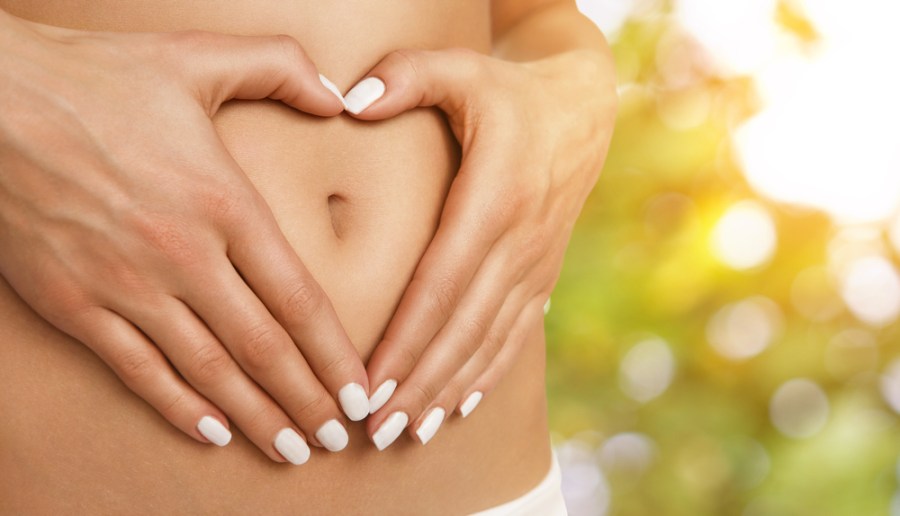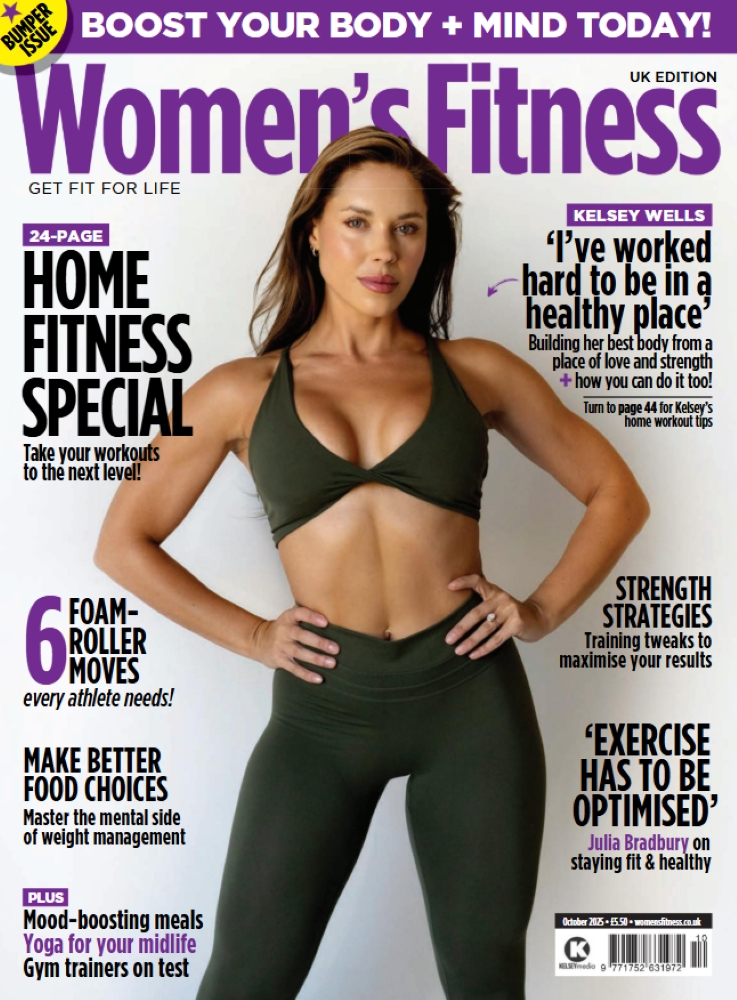Should you rest or have an easy workout when you have your period, or can you still achieve your exercise goals? We asked three fitness professionals to reveal how they train around their cycles. Words: Sarah Sellens.
‘I dread having a period on race day’
Ironwoman Nikki Bartlett, 33, has learnt how to race through monthly pains.
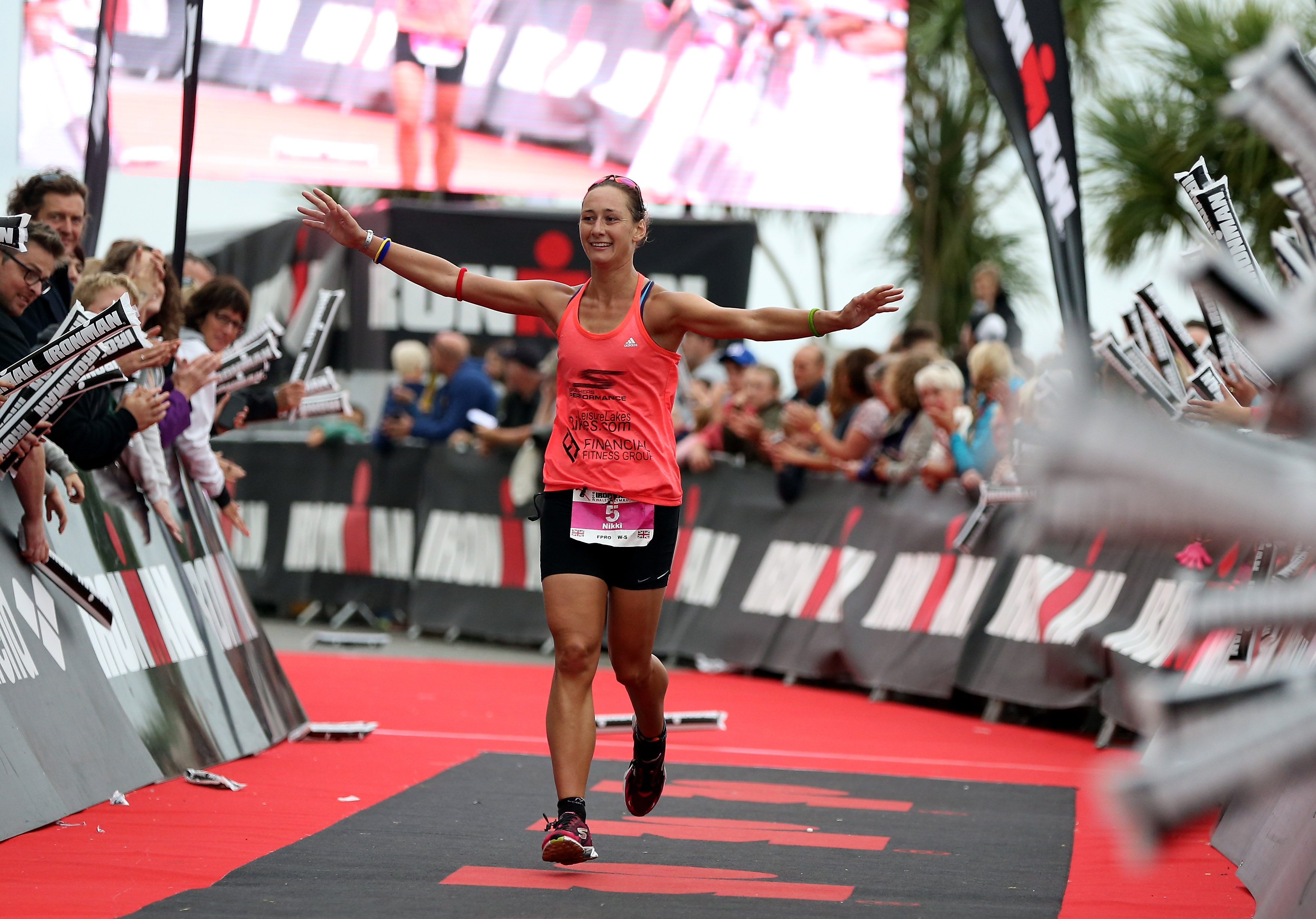
Photo by Nigel Roddis/Getty Images for Ironman
‘Periods affect every athlete differently – I have friends who suffer, some who don’t notice them, and others who are starting to develop more severe symptoms with age. For me, the monthly cycle leads to bloating, food cravings, headaches, more toilet stops, mood swings, pain, and I can even spend hours bedbound on the first and second day of my period. I get night sweats and sleepless nights leading up to it– and that’s just to name a few of the symptoms!
‘Being on UK Sport funding as a British Triathlon PTVI Guide, I’m lucky to have access to some of the best practitioners in the world, including the English Institute of Sport (EIS) sports doctor and nutritionist. We’ve worked on a few dietary changes leading up to and during my period. I increase my magnesium intake through eating more spinach, nuts, and dairy foods, plus I have more iron-rich foods and take Ferrograde C (an iron and vitamin C supplement). I also have anti-inflammatories three times a day, starting on the first day of my period and lasting for three days.
‘I dread having a period on race day. I race often, so it’s inevitable, and racing an Ironman on a heavy, painful period is grim. Unfortunately, I’ve had to do that for three out of the six Ironmans I’ve done! I take painkillers but sometimes they’re not that effective. So I cut out foods that might aggravate the pain and view it as an opportunity to learn to deal with the symptoms. Every month is different. My first Pro Ironman win was last year’s Ironman Lanzarote, and it was actually on the worst day of my cycle. When the pain was controlled, I felt great. There is a performance benefit to be had during this phase if you can get away from the negative connotations.’
Nikki’s top tip
‘It’s important to track your cycle. I use the FitrWomen period tracking app and highly recommend it. It tracks your period and, most importantly, allows you to see which phase of the cycle you’re in, providing advice on nutrition, sleep and training to optimise each stage. Us women are primed for great training around the first seven days of our cycle – knowing this, I try to turn it into an advantage.”
Nikki Bartlett is a Hoka One One athlete who specialises in Ironman triathlon
‘Women perform differently depending on their cycle’
Fitfluencer and online trainer, Anna Cousins, 40, wants more women to understand menstrual changes.
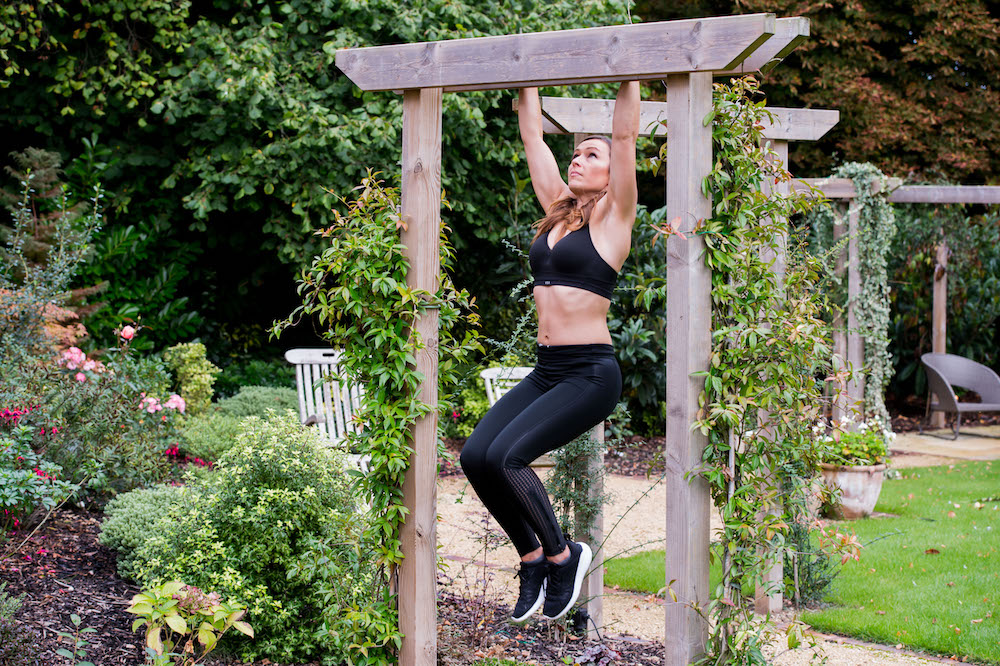
‘If you ask any fitness instructor, they’d agree that personal trainers need to be on their “A” game as much as possible, but I’ve found it’s important to be real too. That’s what sets me apart from others – I talk about the rough days with my clients. As such, I’ve always found the hormonal changes associated with my period lead to fatigue, emotional swings, bloating and increased muscle aches – this is something I take into consideration when planning my, and my clients’, workouts.
‘Women definitely perform differently, depending on where they are in their cycle – around ovulation, they might smash a workout and feel strong; during the luteal phase [the time between ovulation and the start of a period], energy depletes and it’s likely they’ll only perform at around 60 per cent of their capacity. Changing their diet while on a period can really help restore energy levels – eat little and often, ensuring lots of nutrient-packed food. I also find that using the time to focus on stretching or doing gentle exercise such as Pilates and yoga, is a really good way to ease niggling issues such as lower back pain, headaches and tummy aches.
‘A couple of days before my period is when my energy levels start to improve, so I save my hardest classes for this time. I’ve not experienced anything that has stopped me mid-workout, but I’ve had to stop clients during a session. The focus should always be on quality moves over quantity, and when a client’s mind is not on a workout because they’re suffering from cramps or no energy, it’s time to stop. Poor injuries often are a result of poor form.”
Anna’s top tip
‘Don’t skip a session because you’re feeling achy – do something achievable such as gentle Pilates or yoga. I particularly love doing the child’s pose to relieve period cramps, plus back, shoulder and neck tension.’
‘You can have good days when you don’t expect them’
Athlete Alice Hector, 38, says that periods needn’t hold you back.
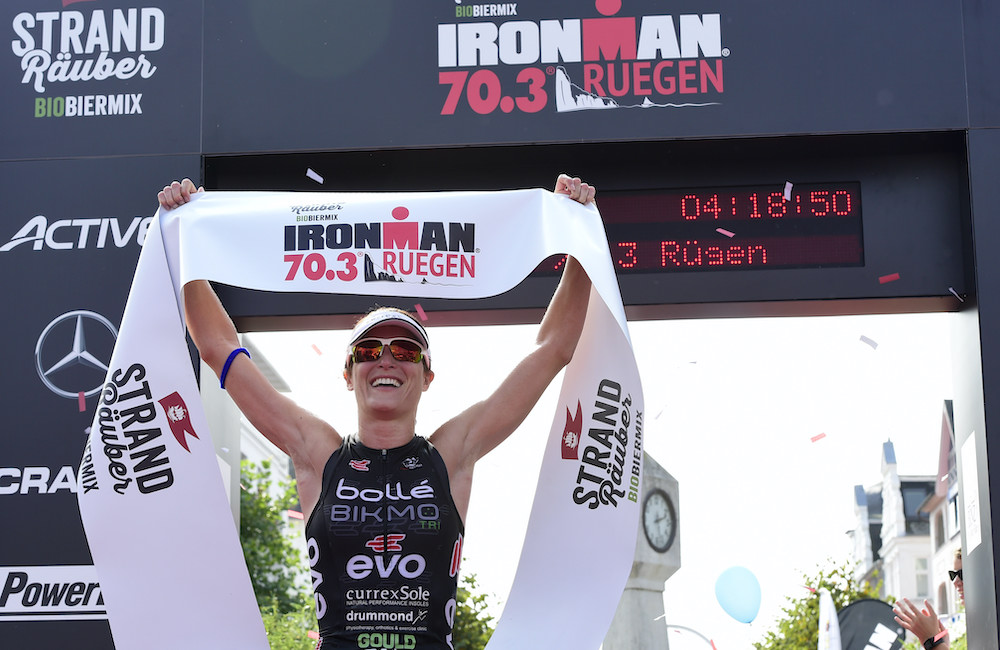
Alice Hector celebrates her win of the first place at the Ironman 70.3 competition on September 11, 2016 in Binz, Germany. (Photo by Alexander Koerner/Getty Images)
‘I’ve been participating in elite sport for 20 years. In my 20s, I wasn’t self-aware enough to notice the symptoms of my period. I was also on the contraceptive pill, so that may have masked signs. I had a break from sport in my late 20s and, when I came back to it in my early 30s, my hormonal state had changed. I was having regular periods, which was great because a normal cycle can indicate that your body is coping with high training loads, but I was off the pill and experiencing horrific pre-menstrual syndrome (PMS) – my mood had shifted, and symptoms were lasting a whole week!
‘I’ve since discovered that we women reach our hormonal peak in our mid-to-late thirties and PMS is as bad as it’s ever going to be. The worst days for me are the day before my period and the first day of it and being stressed makes PMS more severe. At a time when I was experiencing high anxiety, I even had to stop a run because I was getting cramping pains from my neck down to my thigh!
‘I’ve worked quite a bit with a dietitian and now have a list of foods and supplements to take the week before my period. It involves drinking more fluids, adding ginger or turmeric to meals, reducing salt and not limiting carbohydrates. There are things I do differently, too – I replace lost fluids and energy within 30 minutes of training (not within the two-hour window that is often recommended) because the body is very catabolic before and during the first few days of menstruation, meaning that things break down quicker.
‘I’ve got a two-week window just after my period when I feel like I can do anything, and that’s when the intense training can be done. I’m more in tune with my body now than I used to be, so I can tell when a heavy period is affecting my training. The important thing, I think, is not to rule anything out because you know your period is coming – you can always have good days when you don’t expect them, and you can also have bad days when everything is supposed to work.’
Alice’s top tip
‘Conventional advice is to take it easy when you’re on your period, but I’ve found that training hard, if you’re able to, can help. Doing that means you’ve got experience banked, which you can call upon should a race catch you on your worst day – you can remember the session you did and know that it might not be game over just because your period has started.’
Alice Hector is a Sundried ambassador.
Managing your periods

Rachael Penrose, personal trainer at F45 reveals tips for exercising while on your period.
Listen to your body
Most of us lack energy when we’re on our period, so a high-intensity cardio session may not be the best choice. Look to do a strength-based workout with slower, controlled movements that support your joints and any cramping or lower back pain.
Think of the benefits of exercise
You might not have the motivation to get up and going but remember that there are a lot of benefits to working out at that time of the month. Exercise increases blood circulation, which will help to reduce menstrual pains, fatigue and headaches. Physical activity also releases endorphins that will help to boost your mood.
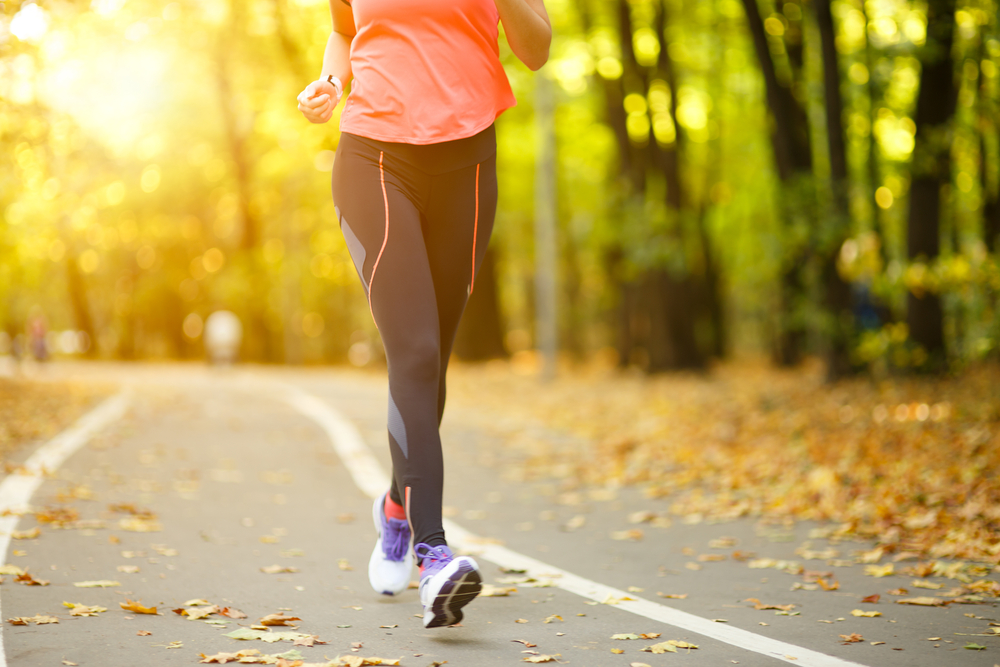
Drink plenty of water
Blood loss and increased body temperature will increase your fluid loss. Listen to your body and stay hydrated. If you’re lacking in energy, turn to exercise for your fix instead of increasing your caffeine intake.

